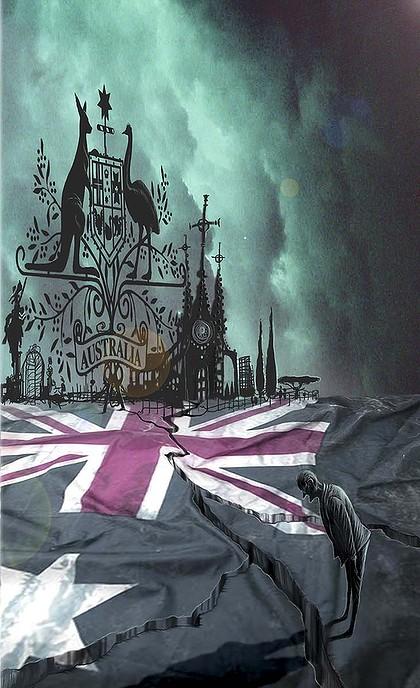Victims Owed a National Inquiry
By Paul Daley
Few countries are much good at exploring their darker sides. We wait for ugly boils to surface and lance them in the hope they won't recur, long before we look for the causes. The great social injustices of Australia's recent past fit awkwardly with the way we'd define ourselves as a nation. We have found that definition in Anzac because the legend - of the supposedly egalitarian digger and of endurance - is an easily adaptable metaphor to our sport, the arts and politics. Many historians and social observers in the 1960s and '70s predicted the Anzac myth and legend would decline in cultural influence as the men of the 1st Australian Imperial Force became extinct. But the reverse may actually have happened as they become more idealised. An alternative paradigm is Federation and the ideals it enshrined. Federation's were realised through deeds such as women's suffrage and minimum pay, at a time when far older democracies struggled with the same notions. But the stories surrounding Federation on January 1, 1901, were eclipsed by another date - April 25, 1915. Regardless of how we choose to see ourselves, we have not always been great at picking up those who've slipped between the cracks of the freedom and the fair-go egalitarianism. From August 1914, 416,809 Australian men volunteered to fight in World War I. Some 324,000 of them served overseas and 61,720 of them died. Of those who returned, tens of thousands were afflicted with terrible injuries. We can safely assume that the rest experienced some form of ongoing trauma. But they suffered in silence. Limbless soldiers were discouraged from begging on the streets and the psychiatrically impaired - including at least two Victoria Cross winners - were shunned and institutionalised. Things have moved some way for Defence Force personnel who are injured on duty. But now - as then - too many end up caught in a bureaucratic maze of endless medical examinations and interviews, as they try to prove their injuries are service-related. Their plight is important because the way we treat those who go to war in our name surely sets the benchmark for others more ordinary. There have been countless parliamentary inquiries into military justice and compensation over the years. But Parliament is a less than ideal forum for these sorts of inquiries. At some point a Royal Commissioner needs to undertake a broad investigation. A good and wide parliamentary inquiry will, however, uncover the stories of tragedy and injustice that we must then be prepared to act on. This year the Senate produced a heartbreaking report into forced adoption - Commonwealth Contribution to Former Forced Adoption Policies and Practices. It was in the vein of 1997's Bringing Them Home parliamentary report into the removal of Aboriginal children. Now the Victorian Parliament is conducting its own inquiry into sexual abuse by religious and community organisations in the state. It is unlikely to do more than scratch the surface of a national scandal. Allegations of sexual abuse against the Catholic Church in Australia are decades old. But child abuse is by no means limited to the Catholic Church. The focus should be on all, not some. Which is why the investigative job is too big for a state parliamentary committee. Tony Abbott was correct to point out the breadth of the problem this week, prefacing his comments with: "I think where criminal behaviour has taken place it should be reported to the police and prosecutions should be launched." Too many people have personal stories about institutional sexual abuse. They may have suffered personally. Or they may know an alleged victim. In my late 20s I was called to make a police statement in support of a victim who'd shared what he regarded as his "shameful secret" with his peers as a teenager. The case didn't proceed. At university I met three other victims, involving three institutions of different denomination. Recently I wrote about my friend, a military officer, whose brother was repeatedly sexually abused at his church school. The brother then lived a life of drug addiction and alcoholism before dying, consequently, in his early 40s. His alleged abuser lives in the Vatican. Only an exhaustive national inquiry will make a difference. It's time, true to our egalitarian ideal, that the nation exorcise this dark aspect of its being.
|
.
Any original material on these pages is copyright © BishopAccountability.org 2004. Reproduce freely with attribution.
